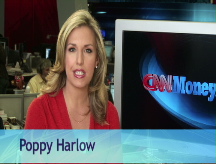Home sellers suffer amid wave of foreclosures
Ordinary home sellers have a hard time competing against the cut-rate bank owned properties that are currently dominating the market.
| 30 yr fixed | 3.80% |
| 15 yr fixed | 3.20% |
| 5/1 ARM | 3.84% |
| 30 yr refi | 3.82% |
| 15 yr refi | 3.20% |
NEW YORK (CNNMoney.com) -- Selling a home in this market is hard enough. Competing in a neighborhood flooded with foreclosed homes that are heavily discounted is nearly impossible.
There are nearly a million repossessed homes on the market right now. And these homes, dubbed in the industry as REO (real estate owned) properties, are being marketed by the most motivated of all sellers - that is, the lenders stuck holding the bag when homeowners default.
On average, foreclosed homes are priced almost 40% lower than normal real estate listings, according to data supplied by Trulia.com, the real estate Web site.
"Distressed sales [like foreclosures and short sales] put pressure on the whole market," said Robert Kleinhenz, an economist with the California Association of Realtors.
The lenders selling foreclosed homes have already taken a financial bath, in missed mortgage payments and administrative costs. And every month that an REO home sits empty means another month that the lender has to pay to cover property taxes, insurance and maintenance. What's more, as home prices continue to fall throughout the country, these homes are rapidly depreciating as they sit on the market.
With foreclosures priced so low, there is just only so much an ordinary seller can charge for a comparable house. Consider these figures: In California, the median price for an REO listing was $259,000 during the week of November 10, 23% lower than the non-REOs on the market according to Trulia.com.
In Nevada, REOs list for 16% less than non-REOs; in Florida they go for 22% less and in Arizona, for 25% less. The disparity is even greater in Midwestern states hard hit by economic woes. In Michigan, REOs list for 26% less, in Indiana, 48% less and in Ohio, 57% less.
As a result, many sellers are holding off. And those that have to relocate are taking a beating.
Roy Uhl, an agent with Shear Realty in Phelan, Calif. recently had a client who had to sell in order to take a job on the East coast. The sale took more than a year and several price cuts.
Uhl originally wanted to list the property at $320,000 but the client had gotten the home appraised for much more - $360,000 - and wanted to hold out for something near that.
But foreclosures mounted in the community about 75 miles northwest of Los Angeles. The house sold last August for just $230,000.
"The foreclosure crisis probably cost that seller $50,000, $70,000, easy," said Uhl.
In some areas virtually all sales are REOs. Four out of every five listings in Stockton, Calif. for instance are foreclosures.
"The traditional market is on hold," said Brian Mikelbank, a Cleveland State University associate professor of urban studies. "Sellers are simply not selling," he said.
Having a large number of REO properties for sale in a community hurts regional prices in three different ways, according to Dan Immergluck, a Georgia Tech professor who has testified before Congress on the impact of foreclosures on home prices.
First, a jump in REOs is a supply-side shock; markets have trouble handling such a sharp increase in inventory. Plus, vacant foreclosures often fall into disrepair, blighting neighborhoods and attracting crime. Finally, although appraisers generally try to disregard REOs when searching for comparable home listings, they just can't do that when foreclosures account for 40% or 50% of the market.
"A lot of people would love to buy now because home prices have come down," said J.L Jennings, owner of Pyramid Real Estate in Oakland, Calif. "But they can't compete when they sell their old homes against REOs."
Homeowners in hard-hit areas that have to sell right now are advised to price their properties as aggressively as the lenders that they are competing with, according to Mark Fleming, chief economist for First American CoreLogic.
And prices are still coming down fast. A median-priced house in Stockton, for example, saw its value decline by 44% in the 12 months ending September 30, according to the National Association of Home Builders and Wells Fargo (WFC, Fortune 500).
For desperate sellers, that means keeping up with highly-motivated banks and steeply-falling prices - no matter how much it hurts. ![]()





